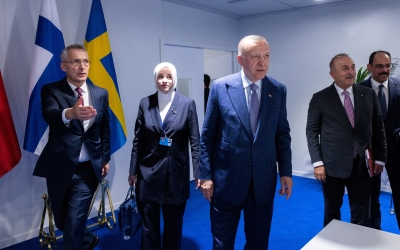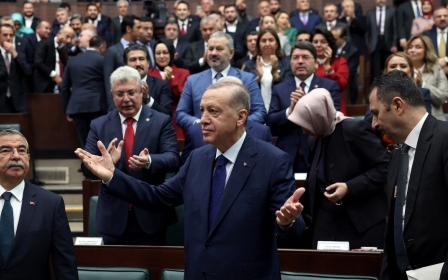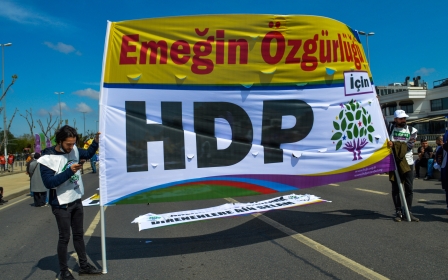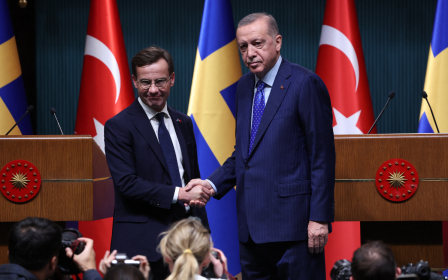Sweden 'can't meet' some of Turkey's demands for Nato bid
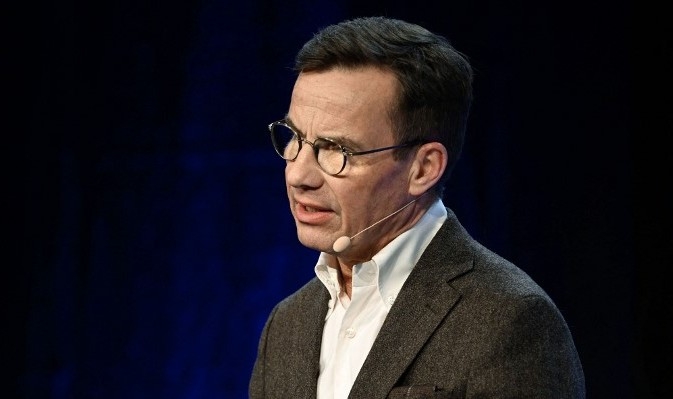
Turkey, which has for months blocked Nato membership bids by Sweden and Finland, has made some demands that Sweden cannot accept, Sweden's prime minister said on Sunday.
"Turkey has confirmed that we have done what we said we would do, but it also says that it wants things that we can't, that we don't want to, give it," Ulf Kristersson said during a security conference also attended by Nato chief Jens Stoltenberg, AFP reported.
"We are convinced that Turkey will make a decision, we just don't know when," he said, adding that it will depend on internal politics inside Turkey as well as "Sweden's capacity to show its seriousness".
Both Sweden and Finland, who long maintained a position of neutrality and military non-alignment, have sought to join Nato in the wake of Russia's invasion of Ukraine.
Turkey has stalled the Nordic countries' requests to join the alliance over accusations that they are providing a safe haven to the outlawed Kurdistan Workers Party (PKK) and other groups linked to them.
New MEE newsletter: Jerusalem Dispatch
Sign up to get the latest insights and analysis on Israel-Palestine, alongside Turkey Unpacked and other MEE newsletters
Most of Turkey's demands have involved Sweden because of its more robust ties with the Kurdish diaspora.
Finland's foreign minister said that the country would join Nato at the same time as its neighbour.
"Finland is not in such a rush to join Nato that we can't wait until Sweden gets the green light," Pekka Haavisto, told reporters at Sunday's conference.
In late December, Turkey praised Sweden for responding to its security concerns but stressed more was needed to win Ankara's full backing for Stockholm's stalled Nato membership bid.
Extradition of Kurdish 'terrorists'
Turkey is seeking the extradition of 33 individuals linked to Kurdish groups it considers "terrorists". A memorandum in June spelled out steps for Sweden and Finland to take to address Ankara's concerns and facilitate its extradition requests.
Following the agreement, Sweden and Finland reversed a ban against exporting military equipment to Turkey that had been imposed in 2019 after Turkey invaded northern Syria, a move Erdogan welcomed on Tuesday.
Sweden has faced opposition from rights groups and Kurdish organisations, including a large diaspora inside the country, on extraditing Kurdish opposition figures.
But in a sign that Sweden is moving in Ankara's direction, the foreign minister said in November that Stockholm needed to "distance" itself from the Kurdish People's Protection Units (YPG) and the Democratic Union Party (PYD) because of their links to the PKK.
"I think it is important that there is a distance to this organisation from the Swedish side," Sweden's Foreign Minister Tobias Billstrom told broadcaster Sveriges Radio.
"We think there are doubts and problems regarding those who are damaging our relationship with Turkey."
"There is too close a link between these organisations and the PKK, which is a terrorist organisation listed by the EU," Billstrom said.
The comments are noteworthy because the YPG remains a key US ally in the fight against the Islamic State group, although the US designates the PKK as a terrorist organisation.
"I want to reassure all Turks, Sweden will live up to all the obligations made to Turkey in countering the terrorist threat before becoming a member of Nato and as a future ally," Kristersson said.
Sweden has so far authorised one extradition for fraud, though Erdogan said that four people had already been deported to Turkey. Both Stockholm and Helsinki say that extradition decisions are made by the courts.
Middle East Eye delivers independent and unrivalled coverage and analysis of the Middle East, North Africa and beyond. To learn more about republishing this content and the associated fees, please fill out this form. More about MEE can be found here.


